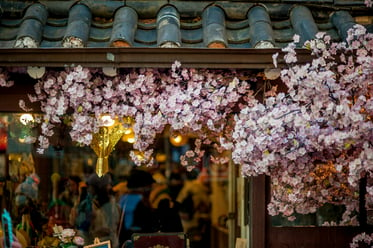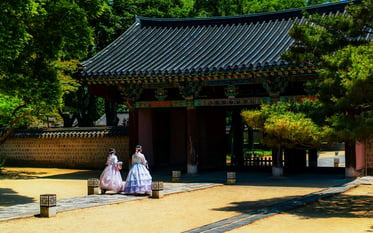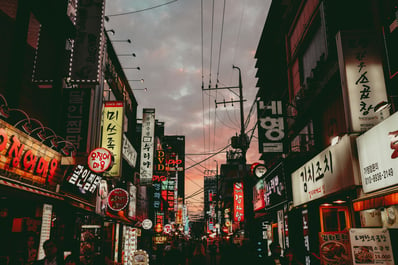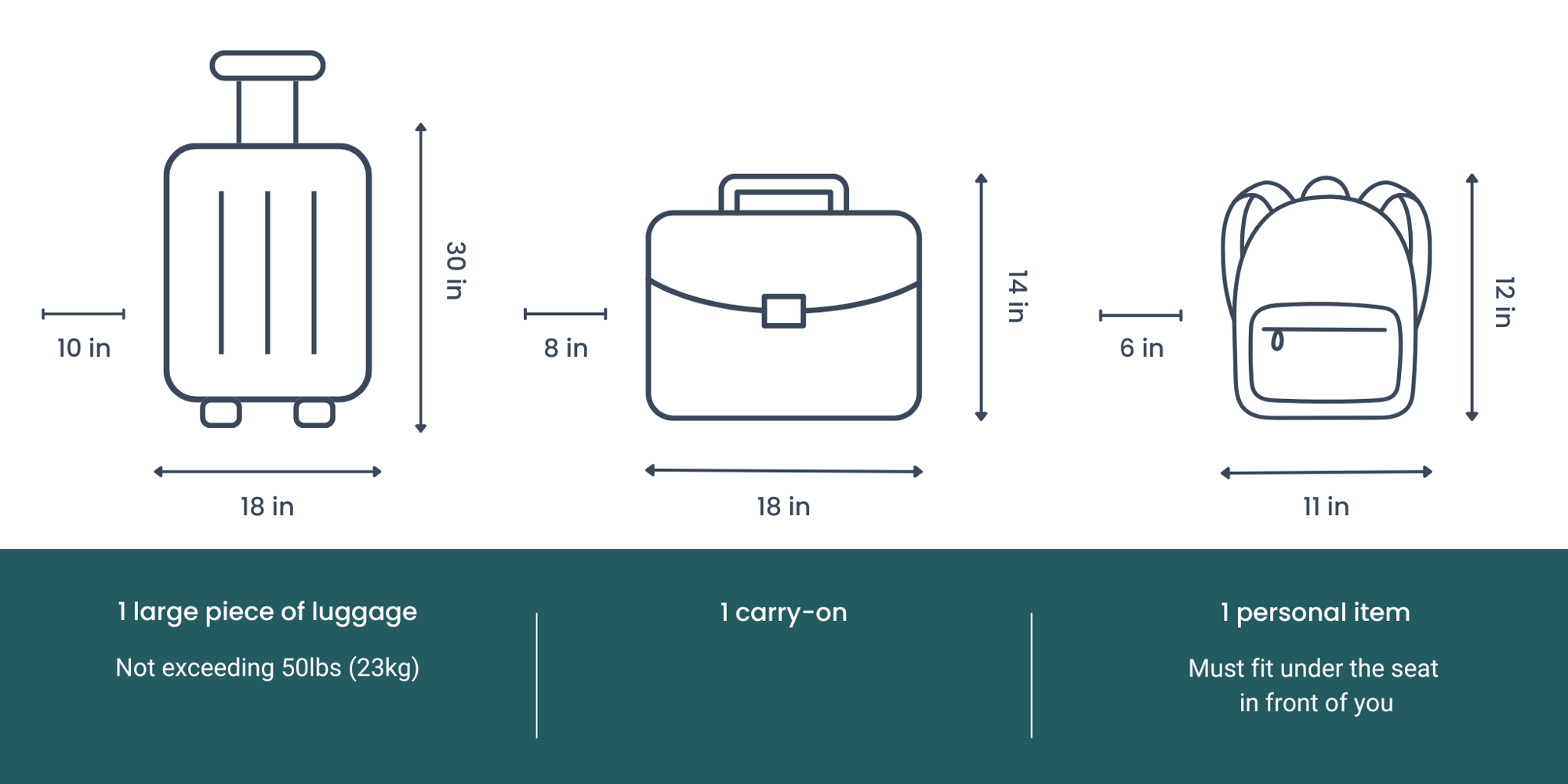South Korea Destination Guide
This essential guide will help you prepare for an unforgettable journey through South Korea.



Essential Travel Information for South Korea
Everything you need to know before your South Korea adventure
Visa & Entry Requirements
- Visa-Free Travel: Citizens from the USA, UK, Canada, Australia, and most EU countries can enter visa-free for up to 90 days.
- K-ETA: Many travelers need a Korea Electronic Travel Authorization before arrival.
- Passport Validity: Must be valid for at least six months beyond your departure date.
- Health Requirements: Check current vaccination requirements before departure.
Transportation
- Public Transportation: South Korea has a clean, modern, and efficient system, especially in Seoul.
- Subways: 9 fast lines, frequent (every ~5 minutes), and far-reaching.
- Buses: Extensive and reliable service throughout cities and regions.
- Rideshare: Uber or Lyft is not available due to local opposition. Instead, you can use Kakao Taxi, a popular and reliable local ride-hailing app.
- Airport to Seoul: From Incheon International Airport (ICN), you can reach central Seoul by taxi (about 1–1.5 hours; higher late-night rates), the AREX Express Train (45–50 minutes), or the AREX All-Stop Train (about 1 hour). Taxis and trains depart from clearly marked areas in both terminals.
Climate & Weather
- Four Distinct Seasons: Hot summers (June-Aug), cold winters (Dec-Feb), mild spring and autumn.
- Monsoon Season: July – August
- Best Times to Visit: April-June (spring) and September-November (autumn)
Currency & Payments
- Korean Won (KRW) is the official currency. 1 USD ≈ 1,300 KRW.
- Currency & ATMs: You can exchange money at local banks or withdraw Korean Won from widely available ATMs—look for machines labeled “Global ATM” to ensure they accept foreign cards.
- Credit Cards & Cash: Major cards (Visa, Mastercard, Amex) are widely accepted in cities, but many smaller shops and rural areas still prefer cash—carry some Korean Won for markets and local establishments.
Mobile & Internet
- SIM Cards: KT, SK Telecom, and LG U+ offer tourist SIMs with data packages.
- WiFi: Excellent coverage in public spaces, cafes, and transportation.
- Power Adapters: South Korea uses Type C and F plugs with 220V.
Currency & Payments
- Korean Won (KRW) is the official currency. 1 USD ≈ 1,300 KRW.
- ATMs: Widely available. Look for "Global ATM" signs for foreign cards.
- Credit Cards: Widely accepted in cities, but carry cash for rural areas and markets.
Time Zone
- South Korea follows Korean Standard Time (KST) – UTC +9.
- South Korea is 13-14 hours ahead of U.S. Eastern Time, depending on daylight saving time.
Emergency Contacts
- Korea Emergency: 📞 112 (Police), 119 (Fire, Ambulance)
- Tourist Helpline: 📞 1330 (available 24/7 with English support)
- U.S. Embassy: 📞 +82-2-397-4114
- Lost & Found Center: 📞 +82-2-2299-8100
Packing Checklist for South Korea
Use this checklist to ensure you pack everything you need for your South Korea adventure
Travel Documents & Essentials
- Passport (valid for at least 6 months)
- K-ETA approval (if applicable)
- Flight itinerary & accommodation details
- Travel insurance documents
- Credit/debit cards
- Local currency (Korean Won)
- International driver's license (if planning to drive)
- Travel wallet or money belt
- Copy of important documents (physical and digital)
- Emergency contact information
Clothing & Accessories
- Weather-appropriate clothes (check the season before packing)
- Comfortable walking shoes
- Light jacket or sweater (even in summer, for air conditioning)
- Warmer layers for winter visits
- Rain jacket or umbrella (especially June-August)
- Modest clothing for temple visits
- Swimwear (for beach visits or hot springs)
- Sunglasses & sun hat
- Backpack or day bag for excursions
Health & Safety
- Prescription medications (in original packaging)
- Basic first-aid kit
- Hand sanitizer/wet wipes
- Sunscreen
- Insect repellent (summer months)
- Pain relievers
- Digestive aids
- Tissues/toilet paper (not always provided)
- Reusable water bottle
- Face masks (commonly worn and sometimes required)
Electronics & Gadgets
- Smartphone & charger
- Power adapter (Type C or F)
- Camera & memory cards
- Portable charger/power bank
- Headphones
- Tablet or e-reader for entertainment
- Translation app or device
- Portable WiFi device (optional)
- Weather-appropriate accessories (hand warmers for winter)
- Voltage converter if needed (Korea uses 220V)
Packing Tips
- Pack for the season! Korea has distinct weather patterns across all four seasons.
- Bring face masks as they're commonly worn, especially during flu season.
- Shoes are often removed in Korea—at homes, temples, and some restaurants—so pack easy slip-on footwear.
- Most toiletries are readily available in Korea, with a wide selection of high-quality Asian beauty products.
Top Destinations & Experiences
Discover the incredible places you'll have the opportunity to visit during your adventure to South Korea

Seoul
South Korea's dynamic capital is where ancient palaces sit alongside soaring skyscrapers and vibrant street markets.
Must-See Attractions:
- Gyeongbokgung Palace – The largest of Seoul's five grand palaces.
- Bukchon Hanok Village – Traditional Korean houses in a 600-year-old village.
- N Seoul Tower – Iconic landmark with panoramic city views.
- Myeongdong & Dongdaemun – Premier shopping districts with street food.
Busan & Gyeongju
Explore South Korea's second-largest city and the ancient capital of the Silla Kingdom.
Coastal & Historical Highlights:
- Haeundae Beach – Busan's famous beach area with incredible coastline.
- Gamcheon Culture Village – The "Santorini of Korea" with colorful houses.
- Bulguksa Temple – UNESCO World Heritage Site in Gyeongju.
- Jagalchi Fish Market – Korea's largest seafood market.


Jeju Island
Known as the "Hawaii of Korea," this volcanic island offers stunning natural landscapes and a unique culture.
Island Highlights:
- Hallasan Mountain – South Korea's highest peak with hiking trails.
- Seongsan Ilchulbong – UNESCO-listed sunrise peak formed by volcanic eruption.
- Manjanggul Cave – One of the world's longest lava tubes.
- Jeju Folk Village – Traditional island life and culture.
Must-Try Foods
Korean cuisine is famous worldwide for its bold flavors, fermented dishes, and communal dining experience. Here are some dishes you shouldn't miss:
Kimchi
Fermented cabbage with chili, garlic and ginger - Korea's national dish.
Korean BBQ
Grilled meats cooked at your table with banchan (side dishes).
Bibimbap
Mixed rice bowl with vegetables, egg, meat, and gochujang (chili paste).
Japchae
Sweet potato noodles stir-fried with vegetables and meat.
Tteokbokki
Spicy rice cakes in a sweet and spicy sauce.
Samgyetang
Ginseng chicken soup with rice, traditionally eaten in summer.
Local Culture & Responsible Travel
Tips for respectful travel and cultural awareness during your adventure
Cultural Etiquette
- Bowing: A slight bow is the traditional greeting. The depth indicates the respect level.
- Shoes Off: Remove shoes when entering homes, temples, and some restaurants.
- Senior Respect: Show extra courtesy to elderly people. Korean society highly values age hierarchy.
- Table Manners: Wait for elders to start eating, don't stick chopsticks upright in rice, and use both hands when giving/receiving items.
- Public Behavior: Avoid loud talking in public spaces, especially on public transportation.
- Shopping Etiquette: Don't haggle in stores with fixed prices, only at traditional markets.
Responsible Tourism
- Waste Separation: Korea has strict recycling rules. Follow local guidelines for waste disposal.
- Public Transportation: Use Korea's excellent public transport system to reduce your carbon footprint.
- Temple Etiquette: Observe silence, don't touch artifacts, and follow photography rules at religious sites.
- Support Local: Purchase handmade crafts and eat at local restaurants to support the community.
- Cultural Respect: When wearing hanbok (traditional clothing), treat it respectfully, not as a costume.
⚠️ Important Safety Note
South Korea is generally very safe, but be aware of the tense political situation with North Korea. Register with your embassy's travel advisory service for updates. Avoid photographing military installations or demonstrations.
Additional Travel Tips
- Language: Learn basic Korean phrases. Many signs have English, but fewer so outside major cities.
- Free WiFi: Look for "Public WiFi" networks in most public spaces.
- Medication: South Korea has strict regulations on medications, including some common prescriptions that are classified as controlled substances.
- Need help searching for a flight? We recommend Skyscanner.com to compare different routes and rates. Click here to search!
- Taxi Tips: Use the Kakao T app for reliable taxi service with English options.
- Food Allergies: Bring allergy translation cards, as English may be limited in some restaurants.
- T-Money Card: Purchase this transit card for convenient travel on buses, subway, and taxis.
- Nightlife: Yes, you can explore in the evenings! South Korea is famous for its bustling nightlife, late-night shopping, and 24-hour eateries — perfect for night owls and adventurers.
Tipping
Tipping Suggestions: Tips for guides, drivers, and restaurants are not included. Tips provide supplemental income, and, while not mandatory, are greatly appreciated. If the local teams have added to the experience, please reward them.
| Guides | USD $5-7 per person/per day | |
| Drivers | USD $3-5 per person/per day | |
| Restaurants | 10-15% of the total bill |
Luggage Restrictions

